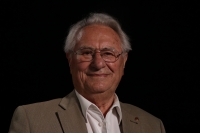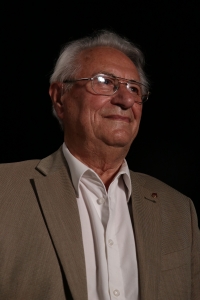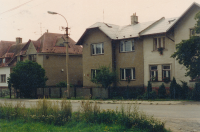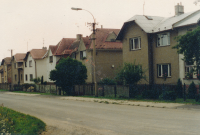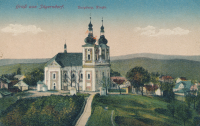If politics were different back then, we could have made a mark together

Download image
Kurt Hein was born as the only son of Ida and Julius Hein on 29 January 1929 in Krnov (Jägerndorf in German). His father was a social democrat before the war. Both of his parents worked in a textile factory and from his sixth month of age until ten years old, Kurt was looked after by foster parents during the workweek. In Krnov, he completed primary school and secondary school up to the age of sixteen, when he was drafted to a camp for military personnel in Hejnov, where he worked as a medic until the end of the war. In Krnov after the war, he was assigned to anti-tank removal work, surviving a mine explosion at the time. At the end of June 1945, he and his parents were driven out of their house and until 1 April 1946, they lived in three different Krnov internment camps for Germans, first in Opava street and later in the “privileged” camp for German antifascists in Hlubčice street. They left the last, Civilín camp by transport to Bayreuth and later to the Bavarian town of Pegnitz. The settled in the nearby village of Bronn. He trained as an artisanal locksmith and for the longest time worked in a carpet factory, where he was also an active trade unioniser. He and his wife adopted two children. They only began going to their homeland over thirty years after expulsion. He has established many friendly ties with Czechs. He died on November 2024.
